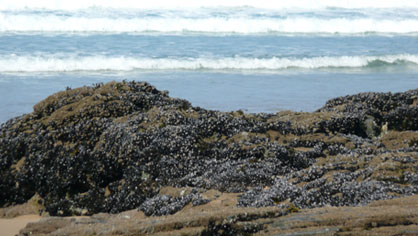4 September 2009
Fishermen are more vulnerable than any other marine group, and marine protected areas had the capacity to disrupt, and even destroy fishing livelihoods.
Natural England and JNCC, the Government’s statutory advisors on Nature Conservancy, were warned at a recent meeting with the Federation that the fishing industry was entirely right in treating the rush to introduce a variety of marine protected areas with deep suspicion and that suspicion would remain until its fears are allayed.
Fishermen are more vulnerable than any other marine group, and marine protected areas had the capacity to disrupt, and even destroy fishing livelihoods.
The York meeting, which was attended by NFFO regional representatives and a large delegation from English Nature and JNCC, provided the opportunity to detail the industry’s concerns, particularly in relation to the recently announced inshore Special Areas of Conservation.
The process of identifying sites was described in detail and Natural England was at pains to emphasise the difference between site designation and the type of management measures that might be deemed necessary to protect the seabed feature concerned. These might range from light monitoring to complete closure.
The meeting provided the opportunity for the Federation to make a number of central points:
- The many different types of marine protected areas (Special Areas of Conservation, Special Protection Areas, marine conservation zones, highly restricted marine areas), along with the many different jurisdictions (EU, UK, England, Wales, Northern Ireland, Scotland, Defra, MFA, Sea Fisheries Committees, IFCAS, Ospar) and the different timetables for introduction, had created a virtually impenetrable jungle of regulation and regulators all tasked with introducing restricted areas of one type or another. Against this background and lack of coherence, it is extremely difficult to hold the clear, straightforward, discussions on ways of protecting marine biodiversity without unnecessary disruption to the fishing industry
- Much reliance was being placed upon impact assessments to calculate the effect that MPAs would have on fishermen’s operations and their earnings. But as the management measures that will be introduced at a later stage and can range from light monitoring to complete closure and displacement, the impact assessments at this stage were likely to be close to meaningless.
- Although the nature conservancy bodies are concerned with establishing MPAs, the fishing industry is also confronted with potentially huge areas of seabed commandeered by the offshore wind-farm industry
- Natural England concedes that it does not have a large body of expertise in the marine field and the mapping of fisheries activity currently being undertaken by a range of bodies for a range of purposes is patchy and incomplete.
- If the introduction of MPAs is to be achieved in the most painless way possible, the Government’s statutory advisors will need to engage with the fishing industry at the local, regional, national and international levels.
- It is reasonable for individual fishermen to think the worst about MPAs – that they will be excluded from their customary grounds – until they are assured that this will not be the case.
- There is enormous scope for unintended consequences. In areas where at present there is a balance between different fishing methods, a closed area will potentially displace fishing effort with consequences for adjacent areas. This could be the most significant legacy of MPAs unless handled very carefully.
- Much reliance is being put by Natural England on Defra’s SAIF project (Sustainable Access to Inshore Fisheries) to resolve the many issues raised by MPAs in inshore zones. But so far little is known about the project and organised bodies such as the NFFO are being kept at arms length.
The NFFO has been active on a number of fronts in relation to marine protected areas:
- By pressing ministers for assurances that marine conservation zones will be introduced only in close dialogue with the fishing industry and that the demands of some in the environmental lobby for 30% of the seabed be closed reserves be dismissed as extreme and serving no noticeable purpose.
- By lobbying officials, ministers, members of Parliament and members of the House of Lords as the Marine Bill passed through the legislative process to ensure that the fishing dimension was fully taken into account
- Through direct engagement with Natural England at national, regional and local level, including participation in the regional stakeholder groups set up to designate MCZs
- By working with the regional advisory councils
This is a major issue for the NFFO which is devoting a considerable amount of its scarce resources to dealing with it.

